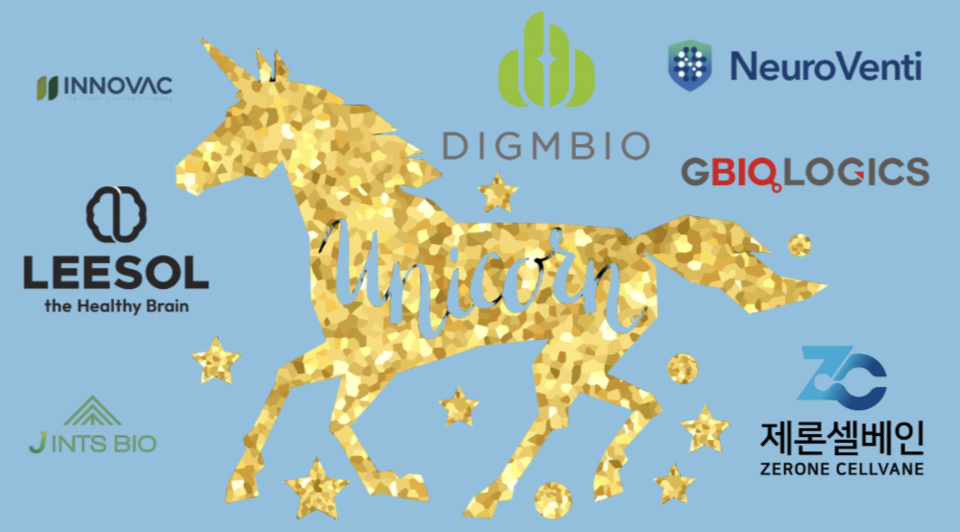Seven innovative startups selected for Baby Unicorn program with strong government backing
The Korean government has officially launched efforts to cultivate the next generation of biohealth unicorns.
According to the Ministry of SMEs and Startups on May 28, 50 promising startups were selected for the 2025 Baby Unicorn 50 program, including seven companies from the biohealth sector. These ventures were chosen for their technological innovation and scalability, positioning them to become key players in Korea’s growing bioindustry with targeted government support.
The Baby Unicorn program is a flagship public-private initiative aimed at identifying high-potential ventures and fostering them into globally competitive unicorns. This year’s program attracted 217 applicants, with a competitive selection ratio of 4.3:1. Companies were evaluated on technological capability, market potential, and investment performance.
Selected companies will receive up to 0,000 in market development funding, special guarantees of up to .62 million from the Korea Technology Finance Corporation, and additional support through global investor relations events, trade fairs, and consulting services. A newly introduced performance-linked guarantee system will allow companies meeting investment or revenue milestones to access additional guarantees without further screening.

The seven biohealth companies selected are: NeuroVenti, Digm Bio, Leesol, InnoVac, Zerone Cellvane, J-Ints Bio, and G Biologics.
NeuroVentiis conducting a Phase 2 clinical trial in Korea for the world’s first potential treatment for autism spectrum disorder, with its selection highlighting the scientific and market value of its research.
Leesoldevelops wearable devices for mental healthcare, including the SleepySol series, which combines microcurrent-based neuromodulation with AI-powered biosignal analysis. SleepySol promotes the release of neurotransmitters such as serotonin, melatonin, and GABA, showing potential benefits for sleep disorders and dementia prevention.
Digm Biois focused on novel drug development, with lead candidates including DM5167 (a next-generation PARP-1 selective anticancer therapy) and DM3159 (a first-in-class agent targeting TASR GPCR receptors for neurodegenerative diseases).
InnoVacspecializes in animal vaccines, with three proprietary products already approved: InnoMyco Vaccine (U.S. patent, designated as a K-Innovation Product), MycoAlpha Vaccine (approved in Vietnam), and InnoMycoCirco Vaccine (new technology certification).
Zerone Cellvanedevelops stem cell-based therapeutics. It has launched CellVane Skin Booster utilizing patented Prism-T technology and successfully exported CellVane Cosmetic, a PDRN-based functional cosmetic brand, to global markets.
J-Ints Biois developing anticancer therapies and is backed by Yuhan Corporation. Its lead candidate, JIN-A02, a fourth-generation treatment for non-small cell lung cancer (NSCLC), was recently presented in Phase 1/2 clinical trial results at AACR 2025 (American Association for Cancer Research).
G Biologicsis advancing biopharmaceutical candidates, including GB910 (a bispecific therapy for rheumatoid arthritis) and GB920 (a KRAS-mutant targeted anticancer agent).
The Ministry of SMEs and Startups aims to nurture these Baby Unicorns into pre-unicorns and, ultimately, into global unicorns. Minister Young-Joo Oh stated, “We will strengthen practical public-private support to help these companies attract further investment and successfully reach IPO.”
Industry observers are now watching to see whether these seven companies will rise as globally competitive K-bio unicorns.

